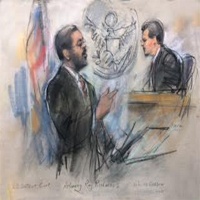Inkster Criminal Lawyer, Michigan
Sponsored Law Firm
-
 x
x

Click For More Info:
-
Richards & Associates, PLLC
200 East Big Beaver Road Troy, MI 48083» view mapCriminal Defense Accomplished Criminal Defense Attorney
If you face criminal charges, you deserve an experienced defense lawyer who has a reputation for winning the tough cases.
800-844-5250
David Eric Karson
✓ VERIFIEDDivorce, Custody & Visitation, Civil Rights, Bankruptcy & Debt, DUI-DWI
David Karson is a practicing lawyer in the state of Michigan handling a variety of legal matters.
Gary E. Gardner
Divorce & Family Law, Criminal, Residential Real Estate, Divorce
Status: In Good Standing
Mahmoud Ahmad Talab
Estate Planning, Criminal, Elder Law, Business
Status: In Good Standing Licensed: 3 Years
Yaminah Mohamed Ganim
International, Entertainment, Family Law, Criminal
Status: In Good Standing Licensed: 9 Years
Amy Leigh Lambdin
Traffic, Employee Rights, Bankruptcy, Car Accident, Criminal
Status: In Good Standing
Lawrence Elassal
Litigation, Family Law, Criminal, Contract, Personal Injury
Status: In Good Standing
 Ray Richards Troy, MI
Ray Richards Troy, MI AboutRichards & Associates, PLLC
AboutRichards & Associates, PLLC Practice AreasSpecializations
Practice AreasSpecializations

